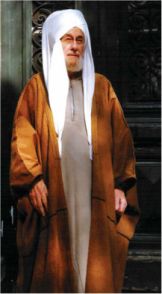


Cairo became his home for over a decade he became an English language teacher at the University of Cairo and produced Shakespeare plays annually. Soon after arriving in Cairo, his friend died and Lings began studying Arabic.

In 1939, Lings went to Cairo, Egypt, to visit a friend who was an assistant of René Guénon. Thereafter, Lings remained Schuon's disciple and expositor for the rest of his life. This prompted his embracing Islam to embrace the branch of the Alawiyya tariqa led by Schuon. In 1938, Lings went to Basel to make Schuon's acquaintance. įor Lings himself, however, the most important event whilst at Oxford was his discovery of the writings of the René Guénon, a French metaphysician and Muslim convert, and those of Frithjof Schuon, a German spiritual authority, metaphysician and Perennialist. After graduating from Oxford Lings went to Vytautas Magnus University, in Lithuania, where he taught Anglo-Saxon and Middle English. At Magdalen, he was a student and then a close friend of C. Lings attended Clifton College and went on to Magdalen College, Oxford, where he gained a BA in English Language and Literature. The young Lings gained an introduction to travelling at a young age, spending significant time in the United States because of his father's employment. Lings was born in Burnage, Manchester, in 1909 to a Protestant family. A student of the Swiss metaphysician Frithjof Schuon and an authority on the work of William Shakespeare, he is best known as the author of Muhammad: His Life Based on the Earliest Sources, first published in 1983 and still in print. Martin Lings (24 January 1909 – ), also known as Abū Bakr Sirāj ad-Dīn, was an England writer, scholar, and philosopher.


 0 kommentar(er)
0 kommentar(er)
